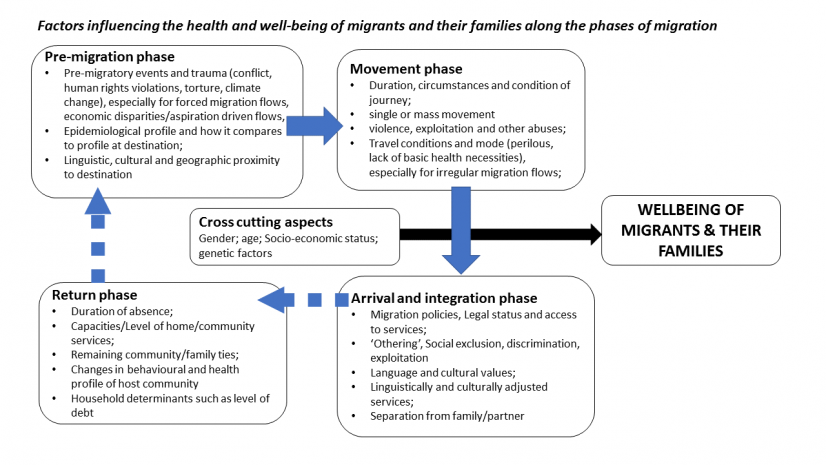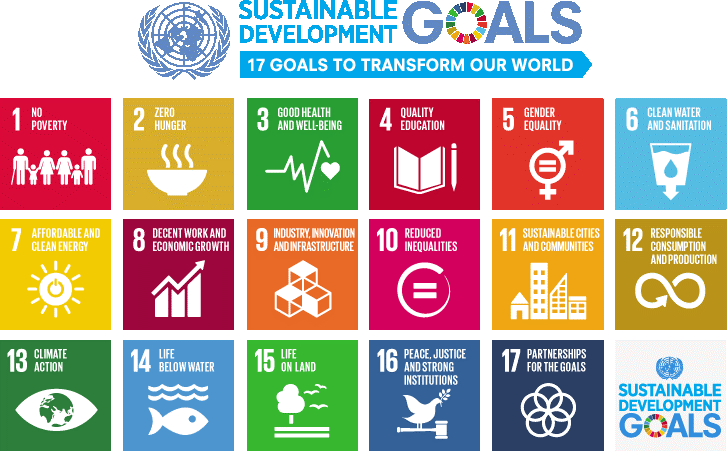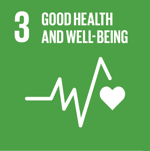Covid-19 and the Health of Migrants

Introduction
COVID-19 pandemic has brought difficult situations for citizens of nations across the world. The effects, however, may be more severe for others, like vulnerable migrants, who are in desperate situations, and whose conditions may well further deteriorate if not put into consideration. The possibility of the deterioration of the situation of migrants is based on the fact that:
- First, the precautionary measure of social distancing will place them in conditions where they would get less support and access to the basic necessities of life. This is evident with the developments in Italy and Libya.
- Second, they are not in a position to keep to the precautionary measures for preventing COVID-19 as they don’t have access to clean water and soap to wash their hands, among others.
- Third, this is compounded by the fact that it has become more difficult than ever for migrants to cross borders and move into countries of their destination. This, obviously, exposes them to health hazards.
- Fourth, it is even more difficult to return back to their countries of origin, as borders have also been closed by transit countries and back home. The implications are that migrants will have to stay in camps and temporary settlements, where there are increased health risks and heightened psychological pressure of having hopes crushed after years of waiting and uncertainty.
- Fifth, some migrants have been deported during this period of COVID-19, and left in a situation of confusion and hopelessness. The search for an alternative place gives them no option of choosing where to go or stay and, thus, places them at risk of associating with people who may have COVID-19.
Unfortunately, migrants are unlikely to take priority in a moment in which governments are mobilizing all resources to care for their citizens. These concerns make the discussion on COVID-19 and the health of migrants a fundamental one. However, there is the need to further establish in general terms the connection between migration and health. After establishing the connection between migration and health, this presentation would focus on a specific heath issue, that is, COVID-19 and the consequences it has for Migration and migrants. This presentation would be three-phased: COVID-19 and Internal Migration, COVID-19 and International Migration, COVID-19 and Sustainable Development Goals.
Migration and the Health of Migrants
Major documents on migration published by the Federal Republic of Nigeria, like the National Migration Policy of 2015 i, the Labour Migration Policy 2010 ii, the Draft National Policy on Diaspora Matters 2016 iii and documents published by International Stakeholders, like the International Organization for Migration (IOM) and the United Nations (UN), make a very strong connection between migration and health.
There are different phases in the lives of migrants that may leave the migrant with very serious health challenges to deal with, depending on the nature of the phase.
The first is the Pre-Migration Phase, which includes the reason for their departure; if it is a war situation or other forms of violence, the mental health of the migrant is already at stake.
The second is the Movement Phase. During the process of movement, the abuses and violence that they encounter on the way can be very impactful on the health of the migrant. And because of the poor health conditions that many migrants encounter on the way, they are likely to arrive their countries of destination with a bad health conditions.
The third is the Arrival Phase. When migrants arrive at their destination countries, they way they are received has huge health consequences. Even if they are well received by their countries of destination, the conditions of those they have left at home continue to be a great source of worry to them, especially, if their relations are still struggling to survive in a situation of war or other forms of violence. If they are separated with loved ones, especially a wife or husband, this has its own difficulties. If the migrant owes the person who smuggled him or her into the destination country or facilitated his or her movement, he or she faces the burden of working hard to pay the person.

Figure 1: Culled from IOM Migration Data Portal 2020 iv
COVID-19 and Internal/Domestic Migration
COVID-19 as a push factor has affected the movements of people at the levels of internal and international migration. Internal migration concerns the movement of human beings within a geographical entity, usually a nation state, thus, without crossing any international borders v.
Internally, Nigeria has seen the movement of people, especially the elderly, from cities to rural areas. The movement from cities to villages is because of the fact that COVID-19 is prevalent in cities than villages.
The Kano state government, in a bid to curb the spread of the pandemic, on 21st April 2020 evacuated more than one thousand Almajiri’s to their respective states and local governments. 432 Almajiri’s have been handed over to the Katsina state government at the Kano/Katsina boarder, Yobe 63, Kaduna 198, Bauchi 101, Zamfara 1, Gombe 9, Nassarawa 10, Niger Republic 1, Kano Local Governments 117 and Jigawa 663 vi.
COVID-19 and International Migration
International migration occurs when people move across international borders into another country other than their own to stay in the host country for residence or some minimum length of time.
At the level of international migration, since the emergence of COVID-19, many Nigerians abroad have been returning home, and many are still asking to be brought back by the Federal Government. On 20th April 2020, the Minister of Foreign Affairs- Geoffrey Onyeama announced that the Presidential Task Force on COVID-19 would be bringing back Nigerian nationals from the United States, United Kingdom, United Arab Emirates, China, among other countries in batches of 200 vii.
As Nigerian nationals are returning home, other nationals in Nigeria have been evacuated by their respective countries. On 19th April 2020, about 300 American nationals and 293 British nationals were evacuated from Nigeria through the Murtala Mohammed International Airport, Lagos. These evacuations came after about 274 Israeli citizens were evacuated from Nigeria to their home country in March 2020 viii. And these evacuations continued in the days ahead of 19th April 2020.
COVID-19, SDGs and the Health and Wellbeing of Migrants
Global development policy was recast following the adoption of the Sustainable Development Goals (SDGs) at the UN General Assembly in September 2015. The adoption of this goal, included the issue of migration in mainstream development policy. The SDGs acknowledge migration as a significant driver of development, and facilitating “safe and orderly migration” through “well-managed migration policies” was inserted into one of the SDGs’ hallmark goals ix: to “decrease inequalities within and between countries” by 2030 x.

The SDGs are commitment to upholding and protecting the rights of migrants in all situations irrespective of their status. The Declaration accompanying the Sustainable Development Goals explicitly included the phrase, “We will cooperate internationally to ensure safe, orderly and regular migration involving full respect for human rights and the humane treatment of migrants regardless of migration status, of refugees and of displaced persons” (par 23, 25, 29) xi.
Ensuring safe, orderly and regular migration, involves in a fundamental way the good health and wellbeing of the migrant. In fact, the third goal of the SDGs is on Good Health and Well-being:

If his or her health and well being is not protected, it means that the migration is not safe and orderly. Thus, in this document on Sustainable Development Goals, a connection is made between development, migration and human health. Speaking of development, it presents development as a concept that is wholistic. It involves not just economic advancement, but also the health of people, and the emphasis of the document on safe and orderly migration, brings in the case of migrants into the picture of world development. The world cannot talk about sustainable development without caring for the health and wellbeing of migrants. And this is exactly where COVID-19 and migrants take their place. Migrants must be protected by governments during this period of COVID-19 by being sensitive to their access to health services in the same way as other nationals.
The Way Forward
In view of the above discussions on the consequences of COVID-19 on migration, I propose the following as a way forward during this period of pandemic:
- The present situation calls for an inclusive approach by public health efforts in relation to the health of migrants, in such a way that is all inclusive. While governments need to tighten their borders and implement other measures in response to COVID-19, they also need to consider the impact of these on migrants and ensure that such actions do not prevent people from accessing safety, health-care services, and information.
- There is the need to reconsider the unjustified fear or suspicion of migrants as careers of disease. This stigmatization has several consequences on the receiving countries as migrants are more likely to be slow at seeking treatment or disclosing symptoms out of fear.
- National public health systems should always consider migrants in their various schemes- they should be such that the migrants can afford. This is important as the world continues to work towards the Sustainable Development Goals. There cannot be sustainable development when the health of migrants is not put into consideration.
There should be an orientation for migrants, right from the time they are received at the borders of nations on the precautionary measures to take during this period of COVID-19. These measures should also be written or presented in languages that the migrants can understand and through appropriate communication tools xii.
- National Migration Policy, Federal Republic of Nigeria, May 13 2015
- Labour Migration Policy for Nigeria, Federal Ministry of Labour and Productivity, 2010
- National Draft Policy on Diaspora Matters. Federal Republic of Nigeria, November 2016
- IOM Migration Data Portal 2020, Retrieved 21st April 2020 from https://migrationdataportal.org/themes/migration-and-health
- Kanu, I. A. Key terms in Migration. A paper presented at the Capacity Training for Media Personnel on Migration Reportage on Benin 17th; Abuja 22rd; and Kano 27th October 2019.
- Aisha Ahmed, Kano evacuates more than 1000 Almajiris to states of origin. News Express. www.newsexpress.com. 21 April, 2020.
- Adelani Adepegba, COVID-19: Evacuation of Nigerians abroad starts next week. News Express. www.newsexpress.com. 21 April, 2020.
- Innocent Odoh, Cononavirus: After Israel, US, UK plan to evacuate their citizens from Nigeria. Business Day. www.businessday.ng.com. March 31, 2020.
- Kanu, I. A. Global Migration Governance. A paper presented at the Capacity Training for Media Personnel on Migration Reportage on Benin 18th; Abuja 23rd; and Kano 28th October 2019.
- United Nations Report, Sustainable Development Goals. Retrieved 21 April 2020 from https://www.un.org/development/desa/disabilities/envision2030.html
- United Nations Report 2015, Sustainable Development Goals. Retrieved 21 April 2020 from https://www.un.org/development/desa/disabilities/envision2030.html
- WHO 2020, Interim Guidance for Refugee and Migrant Health in Relation to COVID-19 in the World Health European Region. Retrieved 21st March 2020 from http://www.euro.who.int/en/health-topics/health-determinants/migration-and-health/publications/2020/interim-guidance-for-refugee-and-migrant-health-in-relation-to-covid-19-in-the-who-european-region-2020

